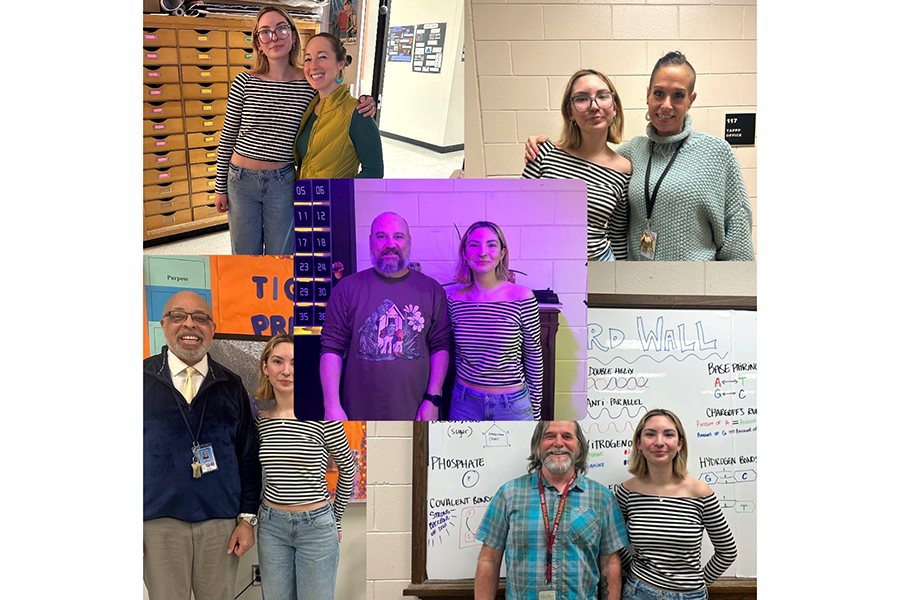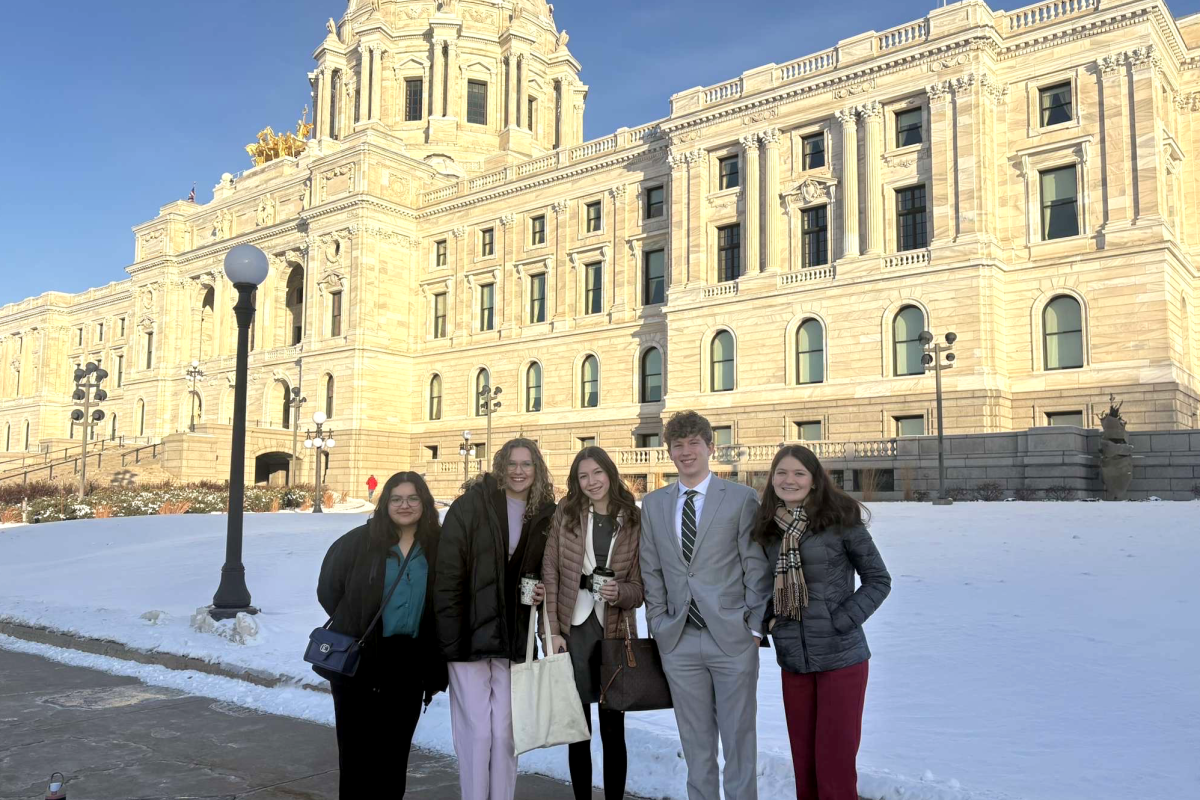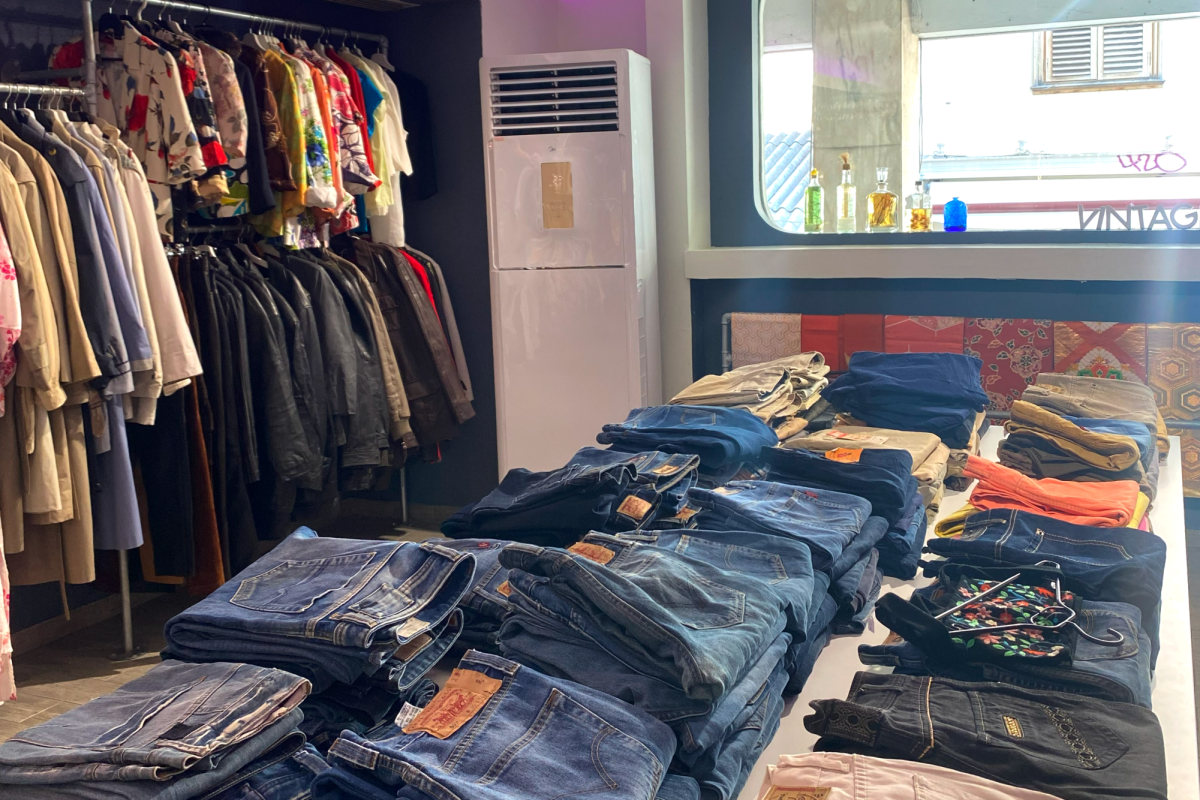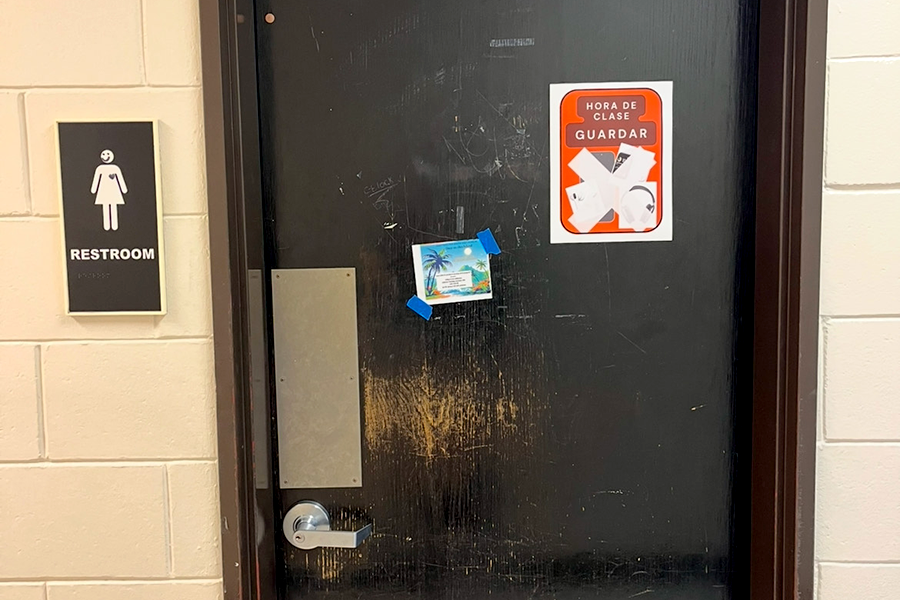Slavery is outlawed in every single country, but those who advocate for victims of human trafficking would argue that there are 27 million slaves in the world today. That is more than at any other given point in history.
“When most people think of human trafficking, they think mostly of commercial sex or sex slavery trafficking,” said Special Agent of Homeland Security Investigations Tonya Slager, “but there are also labor trafficking cases where people are forced to work without pay.”
This is not something that just occurs in third world countries; in Minneapolis there are dozens of brothels that are known and unknown. “What we say is it’s in plain sight,” said Ernestine Fobbs at Immigration and Customs Enforcement (ICE), “it could be in your neighborhood and you cannot see that that person is there who is being illegally human trafficked.” It is vital to know about human trafficking to be able to stop it.
In human trafficking, there are two divisions: labor trafficking-unfair wages or no wages and forced to work long hours- and sex trafficking- where people, usually children, are sold and forced into selling their body for money to johns. “A john,” says South High’s Human Rights Group President Elena Lee Anderson, senior, “is someone who pays for a prostitute.” The Human Rights Group hosted an informational meeting on human trafficking for South students. The group also posted a series of informative posters around South to create awareness about trafficking.
Human Rights decided to create a campaign against human trafficking after discussing how close it was to the South community. The group had noticed that the problem was one that occurred very close to South’s building, and felt it was important to address.
Sergeant Grant Snyder is a member of the Minneapolis police force and works specially with cases of human trafficking. He has closed a number of the trafficking cases in Minneapolis and talks about a recent case he worked on: “I closed a case last year in which a local man (a former Hennepin County Attorney) was convicted of prostituting women,” said Sergeant Snyder, “we initiated this case in 2008 following an anonymous tip that was emailed to our department. After investigating this case, we found a local network of over 60 men who brought women in, and paid them for sex.” None of the women from the United States, but had been brought here from Venezuela, Colombia, and Costa Rica.
The case had been primarily run over the Internet on sites such as The Exotic Review and Craigslist. Potential customers were also found through word of mouth. These websites assisted in johns being connected with potential pimps.
“This case was set in hotels, (the pimps) would provide (the johns) with everything they needed; plane tickets to Minneapolis, and hotel rooms, then their tickets back,” said Grant Snyder, “it was all mapped out.”
Because human trafficking is in the community, it strongly affects the people living around brothels and trafficking hot sports, because they realize just how many people are johns. In the Hennepin case: “Customers had no choice to provide their names,” Snyder recalls, “we found doctors, lawyers, business owners, sport heroes; We have lists of all the names and some of them would surprise you.”
Snyder gives an example of how close to the community the Johns are: “We were on surveillance where we were watching people go in and out of the brothel,” he said, “we were taking pictures and my partner’s daughter’s dentist walked in.”
Although some people turn a blind eye when it comes to trafficking, others know a lot about what is going on in their community. While in the Human Rights informational meeting the topic of the Somali gangs and the trafficking surrounding the gangs was an issue that was discussed and almost everyone seemed to know something about what happened.
Snyder explains what happened in the Somali gang case as, “The Somali gang was luring these 15 and 16 year old Somali girls that they were transported to Nashville where they were pimping them then returning to Minneapolis.” According to a report Minnesota Public Radio’s, “Three Minneapolis gangs allegedly operated the ring, including an all-female gang known as The Lady Outlaws. Working with the Somali Mafia and the Somali Outlaws, the group recruited pre-teen and teenage girls to have sex in exchange for cash, marijuana and other items.”
Understanding what is happening in the community is the number one way to prevent it from happening or catch human trafficking.
“The impact that human trafficking has is not just on the community but on the individual, the human nature that we have is humans that are preying on each other and people are from other countries” says Fobbs “they take their passports and they take their identity, they are forced into bad situations, prostitution, and laborious work and jobs they don’t feel comfortable doing.”
It is very common that people being trafficked disappear and lose their identity, and begin to lose their self-respect and worth. They get pulled into the idea that this is the only thing they are good for and they start thinking it’s how they should be treated.
“They tell you that you are worthless, they tell you that you are a slut and that you deserve this.” Said Shukri Diriye, a senior at Augsburg who is writing her thesis on trafficking “This is all you are worth and you like it, that you want this.”
This, among the fear of their pimp and the fear of being deported can be one of the major reasons why a person who is being trafficked may not attempt to escape from their situation.
“Victims do come forward but on rare occasions. It is very dangerous for them to come forward to police because their trafficker has threatened them and may kill them for talking or running away.” Says Slager “Those who come to the US from other counties are also threatened by their trafficker that immigration will find them and have them deported. The truth is, ICE, Homeland Security Investigations (HSI) does not work to deport illegal aliens who are victims of human trafficking and in fact, HSI has a T-Visa available to those who are determined to be a victim of human trafficking.”
Deportation sometimes seems scarier than the reality the victims are living in, and if their pimp tells them they will get deported, it can be easy for victims to believe as it is the only thing they are being told. “Traffickers can also be skilled manipulators,” Says Slager “and may use drugs, alcohol, or fear to control their victims.”
“Sex trafficking must having one of the three factors involved in the case….Force, Fraud, or Coercion.” says Slager. “Unless there are juveniles involved and then you do not need any of those three.”
Force, Fraud, or Coercion are the building blocks to what trafficking is. Force can mean any thing from threats to physical violence. They often times use drugs and sleep/food deprivation. In the Human Rights group meeting a documentary was shown about four women who were trafficked in Minnesota. One, was forced into trafficking because the Somali gang that made her become a prostitute threatened to kill her family if she did not “become their whore”.
Fraud usually means when someone is promised a job in massage parlor or as a model and then is later to discover that they are really here to for a much darker reason. “We had a case where we worked with Chinese women, a lot of these women were here illegally and they paid someone to smuggle, they answered to ads and thought they were going to work domestic service but they got there and found out they were going to do massages instead and then were forced to provide a sexual service,” says Sergeant Grant Snyder “this is hard to get away from because they don’t have a lot of affiliation and they are easily cohered into doing these things; they knew no body, then they were sent back to where they were afterwards.”
Coercion, much like force are threats or physical violence as a way to keep the trafficked from running away.
People often get involved with trafficking is because it is a profitable low-risk crime. It is low risk primarily because it is not a prominent problem in most people’s lives and therefore they are unaware. Human trafficking is the third most profitable crime behind drug trafficking and arms trafficking.
“My opinion is that Human Trafficking is happening in our country and across the world because, one, supply and demand” Says Slager “we have men who will pay to have sex, if men stopped paying for sex, traffickers would have no one to buy their product i.e. sex. Two, traffickers understand that human beings are an endless supply. Drug dealers sell drugs and people use the drugs up and then the dealer has to get more drugs to sell and make more money. Human beings are a reusable resource, unfortunately.”
“Human trafficking exists because of the economic advantage that it offers the perpetrators.” Says Snyder “That said, human trafficking is aimed at areas where there is cultural diversity. Most of the significant human trafficking cases that I have been a part of, and have knowledge of were aimed at providing minority women to minority cultures.”
According to Humantrafficking.org “Left unchecked, human trafficking will continue to flourish in environments where traffickers can reap substantial monetary gains with relatively low risk of getting caught.”
“Human Trafficking” says Slager “takes a lot of effort, manpower, teamwork, law enforcement/non-government organizations (NGOs) collaboration, and education for the general population.”
If you know someone who is being trafficked or if you are suspicious of trafficking, call the police, or National Human Trafficking Hotline – 1888-373-7888 or get in contact with an organization (breaking Free, The Advocates For Human Rights, The Center for Victims of Torture, Polaris Project or Not for Sale.)







